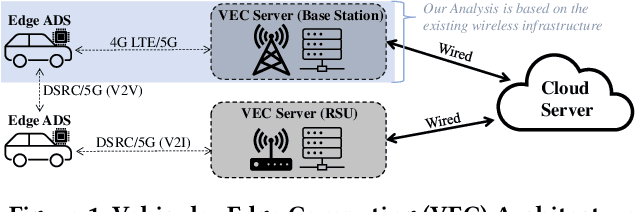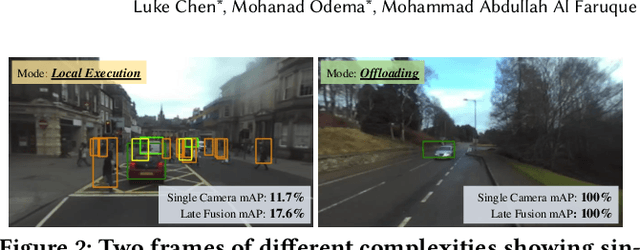Romanus: Robust Task Offloading in Modular Multi-Sensor Autonomous Driving Systems
Paper and Code
Jul 18, 2022



Due to the high performance and safety requirements of self-driving applications, the complexity of modern autonomous driving systems (ADS) has been growing, instigating the need for more sophisticated hardware which could add to the energy footprint of the ADS platform. Addressing this, edge computing is poised to encompass self-driving applications, enabling the compute-intensive autonomy-related tasks to be offloaded for processing at compute-capable edge servers. Nonetheless, the intricate hardware architecture of ADS platforms, in addition to the stringent robustness demands, set forth complications for task offloading which are unique to autonomous driving. Hence, we present $ROMANUS$, a methodology for robust and efficient task offloading for modular ADS platforms with multi-sensor processing pipelines. Our methodology entails two phases: (i) the introduction of efficient offloading points along the execution path of the involved deep learning models, and (ii) the implementation of a runtime solution based on Deep Reinforcement Learning to adapt the operating mode according to variations in the perceived road scene complexity, network connectivity, and server load. Experiments on the object detection use case demonstrated that our approach is 14.99% more energy-efficient than pure local execution while achieving a 77.06% reduction in risky behavior from a robust-agnostic offloading baseline.
 Add to Chrome
Add to Chrome Add to Firefox
Add to Firefox Add to Edge
Add to Edge